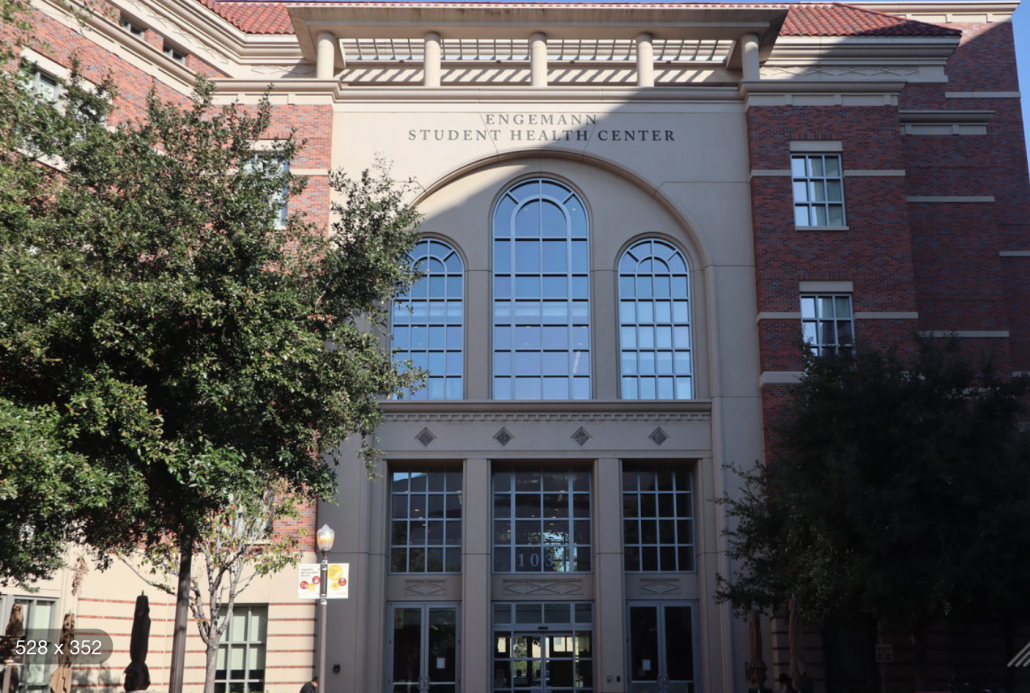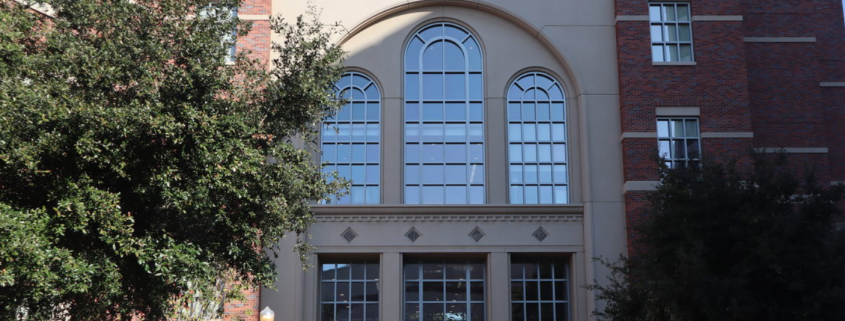Student Health extends hours, adds in-person consults

Among several mental health services Student Health will launch this semester is an extension of operating hours at the Engemann Student Health Center, a change that took effect Monday to address the high demand for appointments. Engemann will now remain open for scheduled appointments for two more hours during weekdays and will be open Saturdays.
Although the change will impact all Student Health services, Director of Counseling and Mental Health Dr. Broderick Leaks said it is part of a University-wide effort to improve mental health services. This is one of the first major steps in Student Health’s expansion of mental health offerings, following the November opening of the long-term mental health practice on the fifth floor of Engemann, which is expected to be fully staffed by Fall 2020, according to Leaks.
“USC, along with the rest of the country, is really trying to figure out, ‘How do we solve this access issue and resource issue to really make sure the students are reaching their goals and living the lives that they want to live?’” Leaks said.
Although walk-in appointments are only offered weekdays and end at 5:15 p.m. daily, scheduled appointments are now available from 8:30 a.m. to 7 p.m. Monday through Thursday, 8:30 a.m. to 5 p.m. Friday and 10 a.m. to 2 p.m. Saturdays. Leaks said the new hours will be finalized in Fall 2020 and will include expanded walk-in hours.
Student Health is in the process of hiring more mental health services staff, which will facilitate the expanded hours and reduce the wait time for appointments. Currently, the wait time for appointments can take up to three weeks, but the goal of extending hours and expanding the health center staff is to cut the wait to three days or fewer, Leaks said.
Emma Collins, a junior majoring in psychology, said that while addressing the booking problems is important, Student Health will still need to work on how it is perceived by students. In the past, students have complained of long wait times and the initial phone consultation requirement for psychiatric appointments.
“I think that scheduling and availability is the No. 1 issue because that’s the thing that most people talk about,” Collins said. “Even if they were to completely fix that, they’d have an image problem to fix because people are still super wary about going in or calling because they think there’ll never be availability for them.”
Leaks said the slots allocated for walk-in appointments prior to 5:15 p.m. can be used for scheduled appointments and vice versa depending on the fluctuation of demand. According to Leaks this can help accommodate for influxes in mental health appointment demands.
As of Jan. 13, all initial mental health consultations are held in person rather than over the phone, as was standard in previous semesters. Leaks said Student Health implemented the phone call policy nearly seven years ago to reduce the wait time for mental health appointments, but with the increase in staff, it has been able to shift back to the model of in-person initial appointments. Students seeking long-term counseling can still opt for a 30-minute phone conversation about referrals and resource options.
“[The change] allows for the therapist to have a little bit more flexibility and freedom in that first encounter, and then the student can actually get started with their treatment a lot faster than they would,” Leaks said.
This semester, Student Health is working on creating more access points to mental health services. This includes the addition of “embedded counselors” — counselors who are located in a department’s respective buildings across USC and can be scheduled through MySHR, the Student Health scheduling and record portal.
“Those embedded counselors will be in the environment of the school, they’ll know the culture of the school, they’ll be able to have a better sense of the specific dynamics for those academic departments,” Leaks said.
As part of the embedded counselor initiative, students at the Gould School of Law and the School of Cinematic Arts can now schedule appointments with their schools’ respective counselors through MySHR.
Student Health also offers the Let’s Talk program, which is a drop-in counseling program in the Student Union with liaisons for the Asian Pacific American Students Services, LGBTQ, La CASA and Center for Black Cultural and Student Affairs communities, as well as in the Office of International Students. Let’s Talk recently increased its hours for international students from one hour per week to three, according to the Student Health website.
“I think the University as a whole is looking at how do we make sure the information gets to the students’ hands in a way that they actually absorb it,” Leaks said. “We’re trying to find creative and different ways throughout the year to get information to students’ hands so they can actually benefit from the immense resources the University has available.”
APASS director Jonathan Wang said that the expansion of the Let’s Talk program has allowed students to feel more comfortable in seeking counseling services, especially in a place that they are familiar with.
“I think the model is great because it’s much more of a drop-in informal session … a 10- to 15-minute conversation,” Wang said. “Whereas I think as students are trying to determine, even if they want to go to Engemann or even if they want to approach the idea of getting therapy or support.”
Wang also said that although the Let’s Talk program has improved mental health for students, implementing a counselor-in-residence would also be valuable to have in each of the cultural centers on campus.
“I would love to see more of a counselor-in-residence model where … they can actually have an [an office in the cultural centers], Wang said. “The limitations for us is that we don’t have the space for that. So all of our offices have just enough offices for our professional staff members.”

